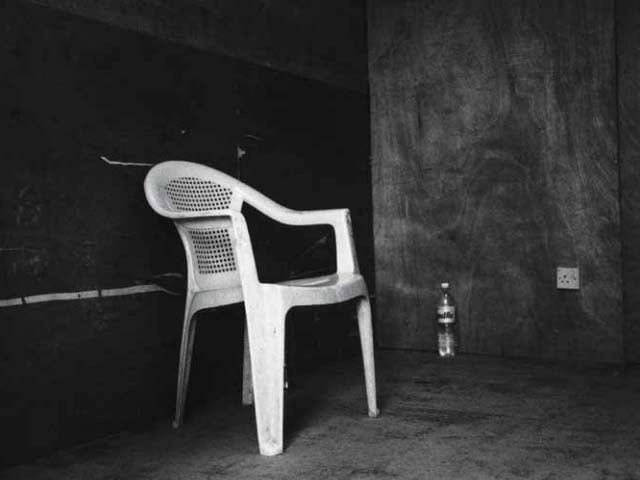Abuse of authority: ‘Make law to criminalise custodial torture’
Speakers say torture in police custody a chronic problem in Pakistan.

Representatives of civil society organisations on Thursday called for legislation to criminalise custodial torture and said there should be no impunity for law enforcement authorities in this regard.
They were speaking at a seminar on Ending Torture: Protecting Human Rights. The Anti Torture Alliance (ATA) Pakistan had organised the event in collaboration with Asian Human Rights Commission (AHRC) on the International Day in Support of Victims of Torture.
“Violence is between two individuals or two groups whose only identity is that of citizens; however it is deemed torture when a public official or a government employee employs the authority vested in the person for illegal purposes,” political analyst Wajahat Masood told The Express Tribune.
Masood said torture was different from violence because it was an abuse of state authority. “In 2010, Pakistan ratified the United Nations Convention against Torture. However, the situation has gone from bad to worse since than,” he said.
Masood said previously unheard of forms of torture, such as enforced disappearance of political activists, had emerged.

The Convention against Torture (CAT) signifies the states’ commitment to curb the abuse of state authority, but “Pakistan has so far failed to show its seriousness in upholding the spirit of the convention”, he said.
Addressing the participants, Bushra Khaliq, executive director of the Women in Struggle for Empowerment (WISE), said torture in police custody was a chronic problem in Pakistan. It violated the social contract between the state and society, she said.
She said thousands of cases of torture in police custody occurred every year in Pakistan but few were reported in the media.
“There are around 1,300 police stations in the country and it can be safely assumed that on average at least one person is tortured at each police station every day, taking the number to 1,300 people being tortured daily,” said Khaliq.
She said sexual violence was also reported by up to 70 per cent women in police custody, along with other violations of their basic human rights.
“It has been four years since the government ratified CAT, but it has failed to minimise the incidence of torture or make laws to criminalise custodial torture.”
Renowned human rights activist I.A. Rehman said it was the need of the hour that law enforcement authorities ensured implementation of the existing laws. He said it was obligatory for the government to make laws against torture.
Samson Salamat from ATA said no law criminalised custodial torture in Pakistan at present, which fuelled unabated torture in police custody. Security forces personnel habitually tortured persons in custody, said Salamat.
“Third-degree methods like beating, burning with cigarettes, whipping detainees’ feet, prolonging isolation, electric shocks, denial of food or sleep and hanging people upside down are common practices in detention centres. Very rarely is any action taken against the police personnel involved in torture.”
Sajida Mir of Pakistan People’s Party (Party) said custodial torture was state-sponsored violence and a colonial legacy, inherited by police to terrorise the citizens. “Judicial remand of the accused has become a major tool through which accused are tortured to extract forced confessions. So the procedure of judicial remand should be eliminated,” said Mir.
Published in The Express Tribune, June 27th, 2014.

















COMMENTS
Comments are moderated and generally will be posted if they are on-topic and not abusive.
For more information, please see our Comments FAQ